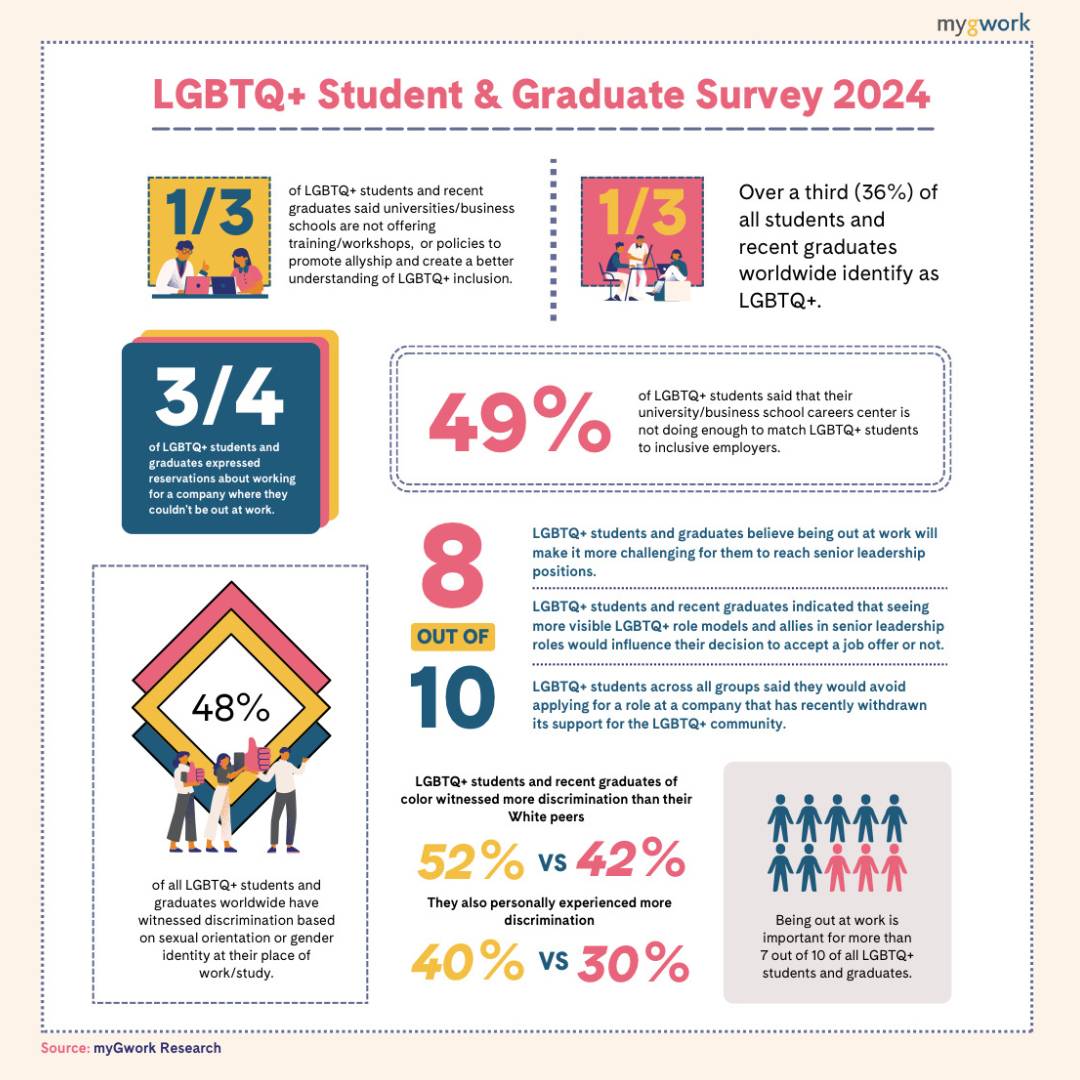One third of students identify as LGBTQ+, with most reluctant to work for companies where they can’t be out
A new study by myGwork also reveals that 80% see the visibility of an LGBTQ+ role model as an influence on job choice
By Dale Fox

New research has revealed that over a third of students and recent graduates identify as LGBTQ+, with the majority saying they’re reluctant to work for companies where they can’t openly express their identity.
The survey by myGwork of over 2,000 students found that 36% identify as LGBTQ+. Three-quarters said they would be reluctant to join organisations where they couldn’t be their authentic selves, fearing discrimination and limited opportunities for career progression.
The research highlights the importance of seeing visible LGBTQ+ role models in senior positions, with 80% of respondents saying this would significantly influence their decision to accept a job offer.

The data also showed high levels of discrimination, with 48% of LGBTQ+ students and graduates witnessing bias based on sexual orientation or gender identity in universities or workplaces. Meanwhile, 36% have personally experienced discrimination such as homophobia and transphobia.
LGBTQ+ graduates of colour reported even higher levels – 52% had witnessed discrimination based both on their orientation and race, compared to 42% for white peers.
Need for active allyship
The findings also emphasised the need for active allyship from employers, with 80% of LGBTQ+ respondents saying they’d be reluctant to join firms that have recently withdrawn support for the community.
“Our latest research goes beyond highlighting industries perceived to be more LGBTQ+ friendly by young job seekers. It provides insights into the criteria LGBTQ+ students and recent graduates seek in inclusive employers and the essential benefits necessary to attract and retain them,” myGwork’s co-founders Adrien and Pierre Gaubert said.
Of respondents, 9% identified as bisexual, 9% as gay men, 5% as queer and smaller proportions identified as other orientations. This reflects growing awareness of diverse identities. Most were aged 25-34, but with 37% aged 18-22, suggesting younger generations expect inclusion.
The full report is available by requesting a copy from myGwork on this link.
